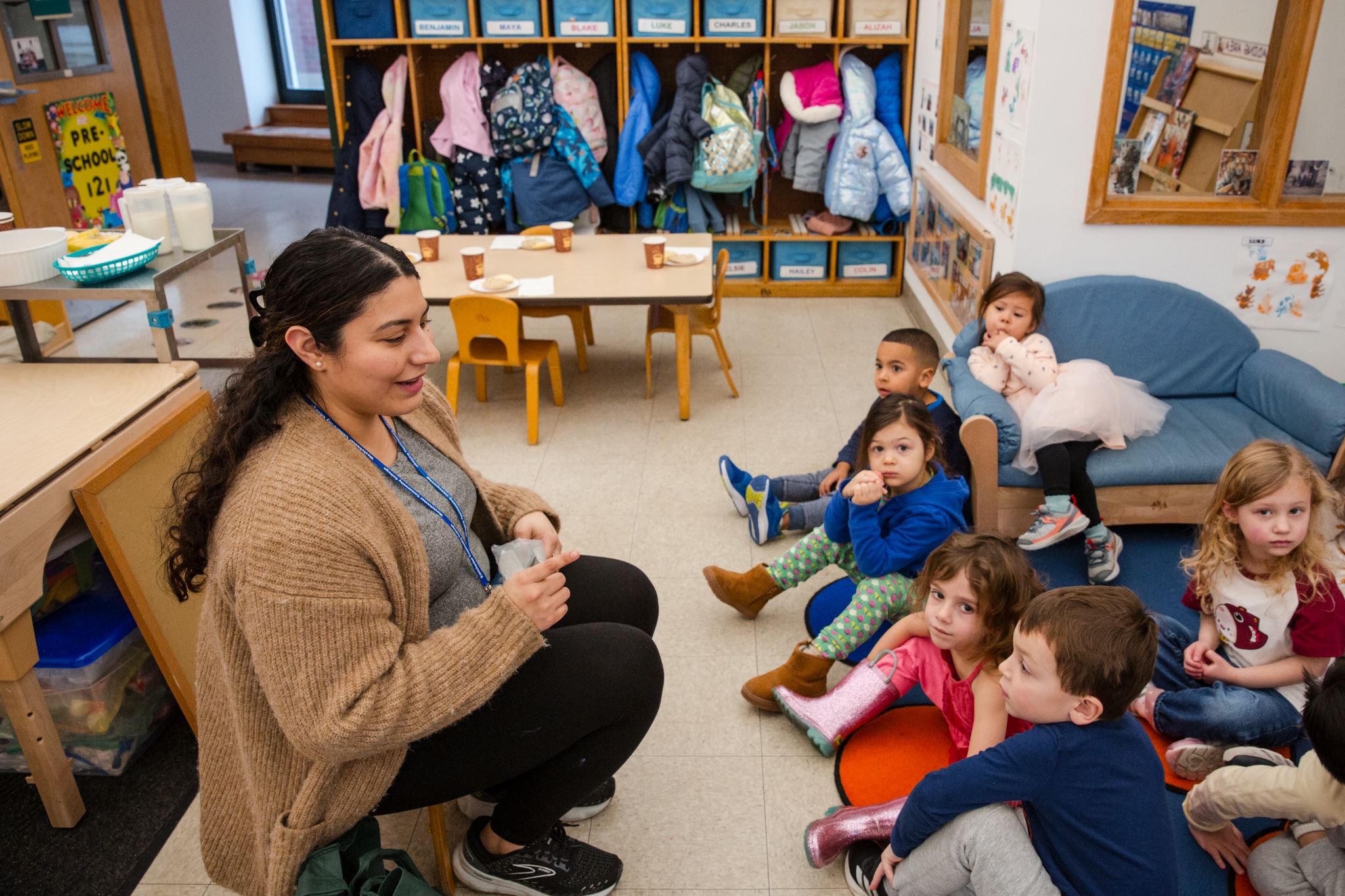A recent report released from Defending the Early Years documents survey results of kindergarten teachers about the disappearance of child-directed activities. The report finds that schools in the wealthiest and poorest school districts in Massachusetts have reduced the amount of time kindergartners have for child-directed activities such as free play, rest, recess, snack and lunch. While these activities have been reduced, the study found that high socioeconomic status schools (SES) schedule 30 minutes more daily, two and a half more hours weekly, than low SES schools. In addition, a survey of kindergarten teachers in the wealthiest and poorest districts in Massachusetts revealed that most teachers are required to use scripted curricula that leaves some children bored or frustrated and teachers do not have enough time to reflect on and adapt their teaching. The report concludes that low SES kindergartners experience educational conditions that do not prepare them for a career in the creative economy where creativity, personal agency, and sense of purpose are necessary. Advocacy at the state and local level is recommended to compel schools to adopt practices that address the needs of children rather than the needs of administrators in pursuit of higher test scores.
The New York Early Childhood Professional Development Institute believes in access to excellence for all of New York’s young children, starting at birth. This report points out the need for policy makers and administrators in Massachusetts and across the nation to cease treating children as data points and to design responsive educational environments led by empowered early educators that nurture the whole child. The Institute works with state and local government to translate best practices and research into effective public policies for all sectors and services that impact the lives of young children, including public health (ED meds), economics, housing, workforce development, criminal justice, mental health, education. These efforts help to ensure that young children receive high quality services in school, at home, and in their communities so that they are better prepared for school and life.
To learn more about the Institute’s work, click here.



Hi Christine,
Thanks for sharing your schedule and thoughts!
Best,
Alyssa
Good afternoon,
i work and practice early childhood education in an urban area in Brooklyn for the past twenty plus years. I know that all children from birth can learn. Creating lesson plans for all ages will be effective on their learnings.
At our facility our day begins at
730am thru 830 am free play( mat/ toys(building blocks, manipulative…etc)
830am thru 900am breakfast
900 thru 915am digestive tjme
930 thru 950 circle time discussions(recital days of the week months of the year,
Different colors shapes, sizes, songs etc
10 thru 11:15 am. academic instructions (lesson consist of a letter, pronouciation, reflection
color page big crayons , two pages of practice reflecting
Academic lesson ( identical sheets are sent home for reinforcemement
Called homework.
Lunchtime 1130 thru 1230
Naptime 1230 thru 245
Snack-time 300 thru 320
Story time 330 4pm
Instructed table time 4pm thru 5pm
manipulative toys dramatic toys play
Free Play 5pm thru 6pm
A structured day is essential for both staff and students, the children will learn and the staff implements good learning information. This information help their cognitive development. . If negative information are given to children they will use this information as well. Good to give them all good information, it’s better for everyone.